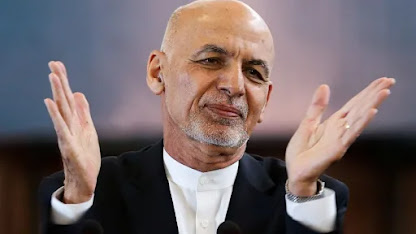By Manlio Dinucci (Il manifesto, Italy)
In his August 16 speech to the White House, President Biden made a succinct statement: "Our mission in Afghanistan was never supposed to have been nation-building. It was never supposed to be creating a unified, centralized democracy".
The message of the President of the United States put a tombstone on the official narrative that accompanied the "mission in Afghanistan" for twenty years, in which Italy too spent human lives and billions of euros public money. "Our only vital national interest in Afghanistan remains today what it has always been: preventing a terrorist attack on the American homeland", Biden explained. But the Washington Post cast a shadow over his words, trying to cover the fake news spread for twenty years, headlined: "The United States Presidents and military leaders have deliberately misled the public about the longest American war, waged in Afghanistan for two decades.”
The public has been "deliberately misled" since October 2001, when the United States, flanked by Britain, attacked and invaded Afghanistan with the motive of hunting down Osama bin Laden, who was being prosecuted of the September 11 terrorist attack (the official version was leaking from all sides).
The real purpose of the war was the occupation of this primary geo-strategic importance territory, bordering the three former Soviet Central Asian republics (Turkmenistan, Uzbekistan, and Tajikistan), Iran, Pakistan, and China (the Xinjiang Uygur autonomous region).
In this period there were already strong signs of a rapprochement between China and Russia: on 17 July 2001, Presidents Jang Zemin and Vladimir Putin had signed the "Treaty of good neighborliness and friendly cooperation", defined as a "milestone" in the relations between the two countries. Washington saw the nascent alliance between China and Russia as a threat to US interests in Asia, at a critical time when the US was trying to fill, before others, the void that the breakup of the USSR had left in Central Asia. "The possibility exists that a military rival with a formidable resource base will emerge in Asia" the Pentagon warned in a September 30, 2001 report.
What was at stake was shown by the fact that, in August 2003, NATO under US command took on "the leadership role of the ISAF", the "International Security Assistance Force" created by the United Nations in December 2001, without having any authorization to do so at that time. Since then, over 50 countries, NATO members and partners have participated under US command in the war in Afghanistan.
The political-military toll of this war, which shed rivers of blood and burned enormous resources, is catastrophic: hundreds of thousands of civilian deaths caused by war operations, plus an un-quantifiable number of "indirect deaths" for poverty and disease caused by the war.
The United States alone the New York Times documented - has spent over 2,500 billion dollars on it. About $90 billion have been spent by the US to train and arm 300,000 government soldiers, who disbanded in a few days in front of the Taliban advance. About $55 billion for "reconstruction" was largely wasted due to corruption and inefficiency. Over $10 billion invested in anti-drug operations resulted in opium acreage quadrupling, so much so that Afghanistan now supplies 80% of opium illegally produced in the world.
Emblematic is the story of Ashraf Ghani, the President who ran away to a golden exile.
Trained at the American University in Beirut, he made a career at Columbia, Berkeley, Harvard, and Johns Hopkins US universities, and at the World Bank in Washington. In 2004, as Minister of Finance, he obtained from "donor" countries, including Italy, an "assistance package" of 27.5 billion dollars. In 2014, in a country at war under US-NATO occupation, he was officially appointed President with 55% of the votes. In 2015, Italian President Mattarella received him at the Quirinale with full honors, together with Italian Defense Minister Pinotti who had met him a year earlier in Kabul.
This catastrophic experience adds to those that Italy already experienced for having participated in the NATO wars from the Balkans to the Middle East and North Africa in violation of its own Constitution. However, no lessons are drawn from it by the political forces that sit in Parliament.
While in Washington the President himself demolished the castle of lies about "high humanitarian purposes", which motivated Italy's participation in the war in Afghanistan.
In Rome, as in Orwell's 1984 novel, history is erased.





No comments:
Post a Comment